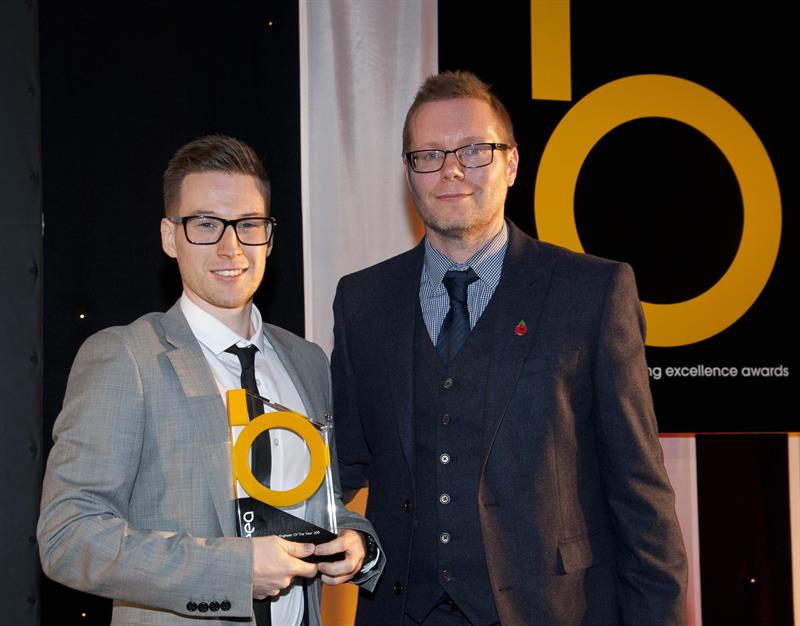What Stamp designs is machines. The sort of machines that package up tins of baked beans in their thousands. And as a design engineer at Kliklok that personal touch is important. Two engineers working on the same application would not come up with the same solution.
Stamp commented: “They'll look completely different. They might operate in the same way or have elements that are similar, but that comes from having proven technology for 50 years in packaging machinery. But I can guarantee that it would look completely different.”
It highlights the sometimes forgotten link between engineering and design. “In primary school I used to love technical drawings, architects' drawings, schematics and stuff,” he said. “It was all quite appealing to me at that time. In secondary school, art definitely helped with the technology classes. Art is a creative subject but engineering is very creative - you're imagining something that has never existed before.”
It was this creativity along with the challenges of problem solving that enticed Stamp to proceed with an engineering degree. But while others in his peer group may have had similar interests at school Stamp said, “that kind of filtered out to the point where no one was left. Very disappointing. No one from my secondary school, that I knew of, went into engineering.”
So, as a person that’s relatively recently been involved in making those formative career choices, what does Stamp think should be done? “Engineering courses are a value added discipline for the country - so why should you be charged for your tuition fees if you're providing a service to help the country be better? What the country needs is more engineers to come up with transport systems, more fuel-economic cars, better renewable energy sources, and stuff like that.
“I think that for Great Britain to flourish again, it needs to come out of the Dark Ages, and become a power of engineering and become more modern. The only way to do that is to invest in our engineers and bring the UK up to a higher standard.”
A further problem, Stamp believes, is the perception of the engineer.
“There's a blurred line between technician and engineer. Also, we see from working with Bosch, over in Germany and Switzerland the general perception of an engineer is at a far higher level than it is in the UK. I would say it's at the same level as a doctor.”
The reference to Bosch is because Kliklok became part of the huge international group last November. So rather than being one of 70 employees, Stamp is now one of 350,000 in the €70bn organisation. While changes to working practices are inevitable, and so far very positive, a further benefit could be in addressing some of the issues Stamp raises with regard to encouraging future engineers.
“Bosch has a really good stance on helping young people, young engineers, get into the industry,” said Stamp.
Although it has had successful outcomes from apprentices in the past, being a small company has prevented Kliklok from investing in a regular apprenticeship programme.
“The company would benefit by taking on more apprentices, training up a workforce rather than advertise for a role that they may never fill because no one meets the perfect criteria,” he explains. “No one really has a background of ‘x’ years designing packaging machinery – which can be anything from hydraulics, pneumatics to servo drives, belt drives, gears and everything else like this. It's such a massive role to fill. But, with an apprentice you could envisage within a few years you've got someone that is tailored to the position in such a way that they're indispensable.”
So, for an engineer with many decades of work in front of him, is the future of British engineering rosy?
“A British engineer is always challenging the norm and always very intuitive,” he replied. “We're all very passionate about what we do, and I certainly feel that the engineering industry will always be there for the duration of my career. I think with that drive towards young engineers, scientists and technologists, and all these people having a common goal, British engineering could be a lot better and a lot stronger than it is in Europe, which seems to be moving more towards Germany and France at the moment.”
Young Design Engineer of the Year Dan Stamp is the reigning Young Design Engineer of the Year from the 2015 British Engineering Excellence Awards. The picture shows him receiving his award from sponsor Mike Bray (right) of RS Components. The competition in this category was tough as there were a number of outstanding candidates. “I was probably the most shocked I've ever been,” admitted Stamp. “I thought the people I was up against were absolutely fantastic, and I really thought there were at least two of them that should have won instead of me. To me it's not just an accolade, it's a recognition from the judging panel that what I have done is worthwhile. It was just a real, big privilege to actually have won it.”
The search is very much on for the stars of 2016, but you only have until 15th July 2015. More information about how to enter is on the website – www.beeas.co.uk |












